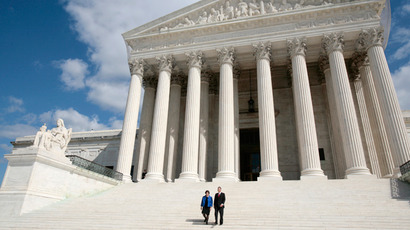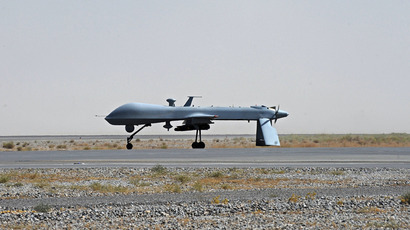White House: Secret spying on Americans immune to lawsuits

After the US Supreme Court upheld the right of the National Security Agency to wiretap Americans’ communications with foreigners without a warrant, the White House seeks to quash a similar lawsuit citing the plaintiff’s inability to provide evidence.
Last week the justices ruled
5-4 against the American Civil Liberties Union and others who
sought to nullify a provision of the Foreign Intelligence
Surveillance Act, or FISA. The provision allows the National
Security Agency (NSA) to intercept emails and phone calls of
Americans as long as they are suspected of communicating with
someone outside of the country.
Judges ruled that the ACLU et al were not eligible to complain because they could not submit evidence that they were targeted by the surveillance program.
Now the White House is seeking to quash another case against the same NSA eavesdropping program, citing the previous ruling as a precedent, reports Wired.
The lawsuit filed by the Electronic Frontier Foundation accuses the US government of secretly monitoring all of Americans’ electronic communications with the assistance of nation’s telecom companies. The EFF says this violates the Fourth Amendment, which protects US citizens from unreasonable searches.
A filing the government submitted on Wednesday it says the previous Supreme Court ruling reaffirms that “a plaintiff bears the burden of establishing standing through the submission of actual evidence, not speculation about present or future injuries. In this case, any such evidence is properly protected by the Government’s state secrets privilege assertion.”
Basically the government says its surveillance program is a state secret and its details cannot be revealed. But without such details it cannot be challenged in court, because the plaintiffs cannot prove that they were harmed by the surveillance.
The EFF’s case however is based in part on internal AT&T documents, which outline secret rooms at the company’s offices that route internet traffic to the NSA. The internet freedom group actually initially sued the US telecom providers. But it had to switch its aim to the government after Congress adopted legislation immunizing telecoms from the lawsuit in 2008.
The case against the government was dismissed by a San Francisco federal judge, who said it amounted to a “general grievance” from the public, and not an actionable claim. But it was later revived by the Ninth US Circuit Court of Appeals in 2011, which ruled otherwise.
The government filed its assertion of how the Supreme Court’s ruling on ACLU’s allegations should influence the standing case at a call from the judge. The EFF is expected to provide its briefing within days.














